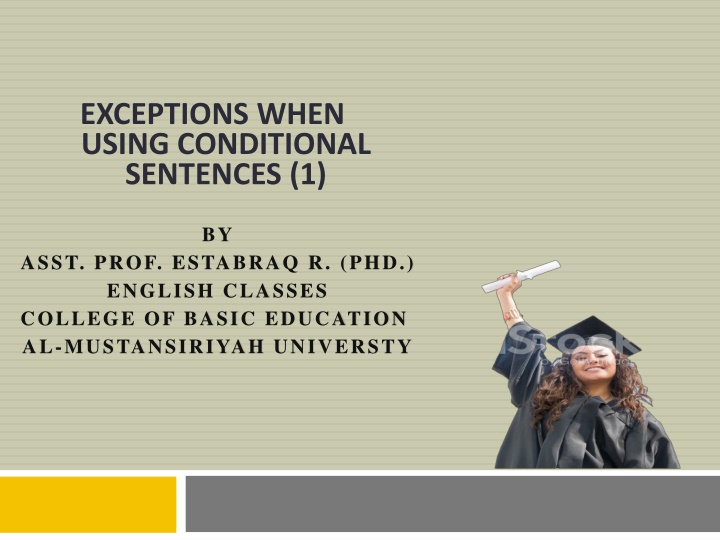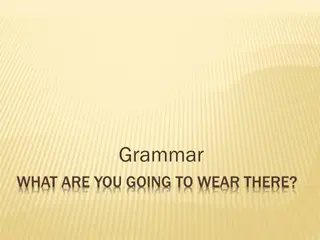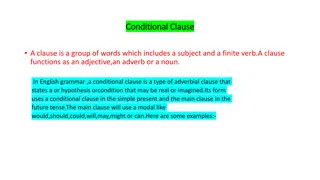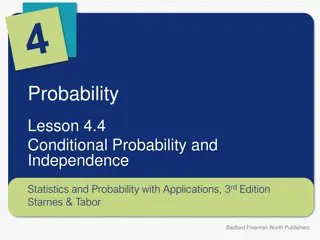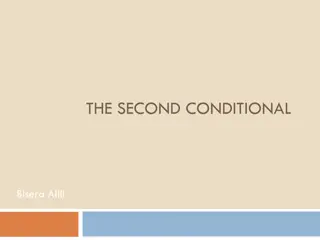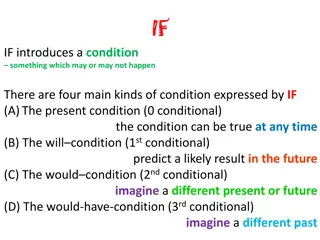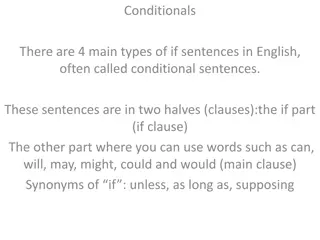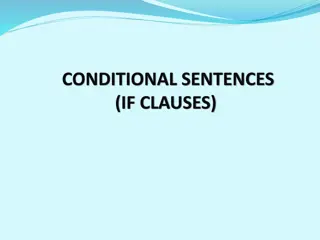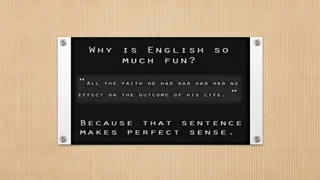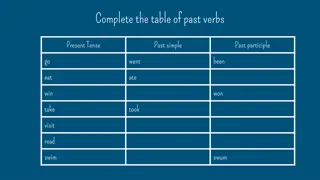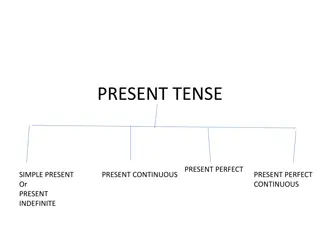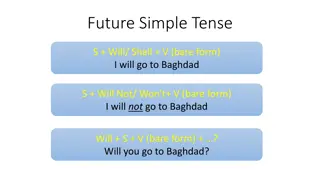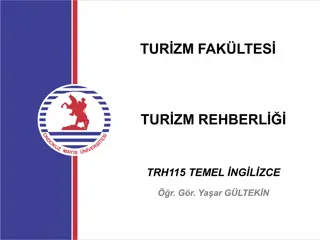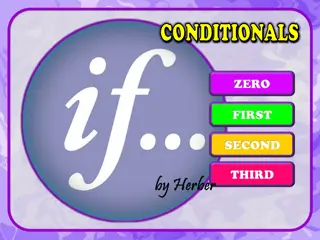Exceptions in Conditional Sentences 1: Future Tense & Were To
Utilize the simple future in the if-clause for actions that occur after the main clause. Highlight dreadful outcomes using "were to." Properly punctuate conditional sentences for clarity in communication.
Download Presentation

Please find below an Image/Link to download the presentation.
The content on the website is provided AS IS for your information and personal use only. It may not be sold, licensed, or shared on other websites without obtaining consent from the author.If you encounter any issues during the download, it is possible that the publisher has removed the file from their server.
You are allowed to download the files provided on this website for personal or commercial use, subject to the condition that they are used lawfully. All files are the property of their respective owners.
The content on the website is provided AS IS for your information and personal use only. It may not be sold, licensed, or shared on other websites without obtaining consent from the author.
E N D
Presentation Transcript
EXCEPTIONS WHEN USING CONDITIONAL SENTENCES (1) BY ASST. PROF. ESTABRAQ R. (PHD.) ENGLISH CLASSES COLLEGE OF BASIC EDUCATION AL-MUSTANSIRIYAH UNIVERSTY
Use of the Simple Future in the If-Clause Generally speaking, the simple future should be used only in the main clause. One exception is when the action in the if- clause will take place after the action in the main clause. For example, consider the following sentence: If aspirin will ease my headache, I will take a couple tonight. The action in the if-clause is the aspirin easing the headache, which will take place only after the speaker takes them later that night.
Were to in the If-Clause The verb phrase were to is sometimes used in conditional sentences when the likely or unlikely result is particularly awful or unthinkable. In this case, were to is used to place emphasis on this potential outcome. Consider these sentences: If I were to be sick, I would miss another day of work.
If she were to be late again, she would have to have a conference with the manager. If the rent were to have been a penny more, they would not have been able to pay it. Note that the emphatic were to can be used to describe hypothetical scenarios in the present, future, and past.
Punctuating Conditional Sentences Despite the complex nature of conditional sentences, punctuating them properly is really simple! Here s the skinny: Use a comma after the if-clause when the if-clause precedes the main clause. If I d had time, I would have cleaned the house. If the main clause precedes the if-clause, no punctuation is necessary. I would have cleaned the house if I d had time.
